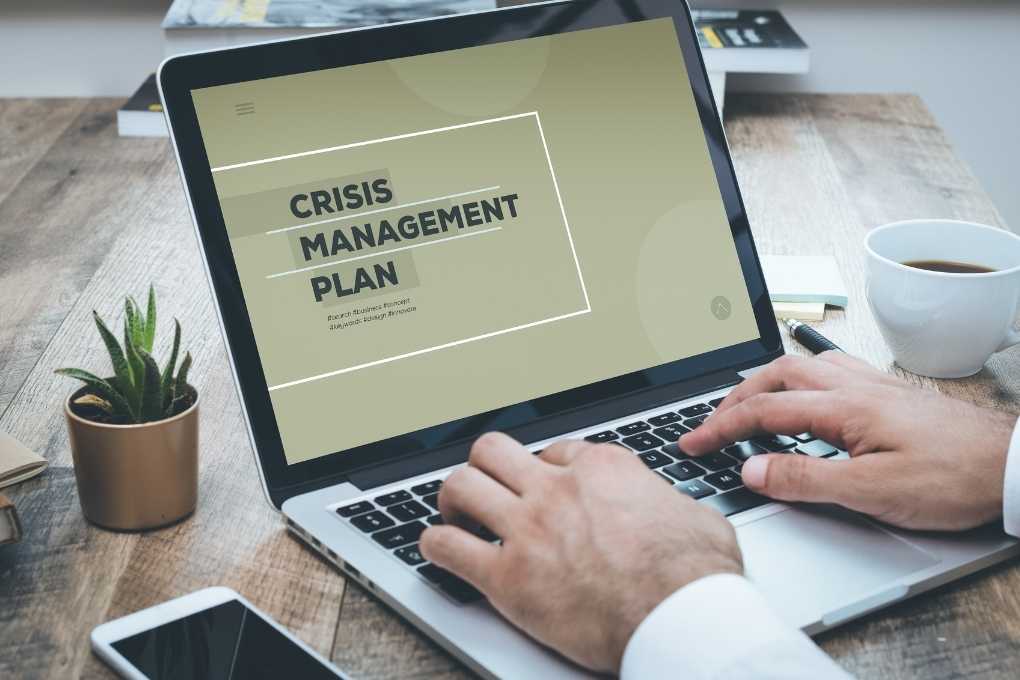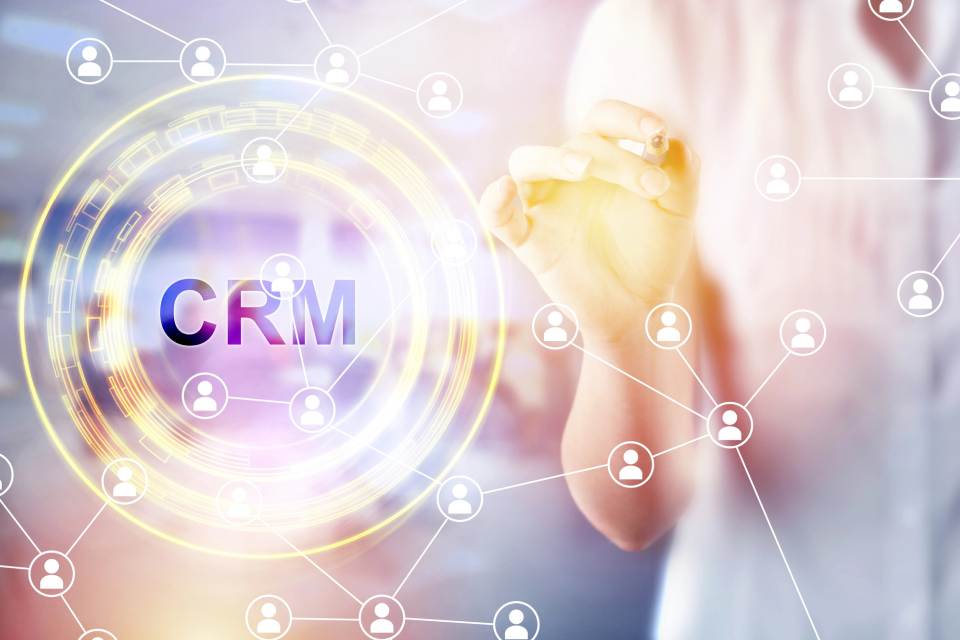Most decisions are made by people emotionally, not logically. If the boss is to transfer the company through a difficult period, he must first understand his emotions. Anger can turn into a driving force, empathy will help with relationships.
Working with emotions belongs in business coaching during good and bad times. In my consulting practice, I observe that in a period when the company is prospering, the entrepreneur is more willing to talk about his feelings. Topics often revolve around business motivation, inner fulfillment, domestic (un) well-being, the message to leave something behind. The company is doing well, the business strategy is clear and the employees know what to do. There is more room left to look inside the soul of the one who heads it all.
The moment an entrepreneur comes under pressure and the company shifts to a crisis regime, emotions go to the background. They will be overtaken by the needs of rescuing contracts, raising cash and finances. Change business plans, monitor important company numbers, or address the effectiveness of employees who must also first orient themselves in a new situation.
People Make Most Decisions Emotionally, Not Logically
No matter how difficult the situation in your business is, you will not be able to help it by suppressing your own emotions. On the contrary. Every entrepreneur is first and foremost a person. Several scientific studies indicate that up to 90 percent of decisions in our lives are made emotionally. And then we use logic to defend these decisions in front of others and ourselves.
Whatever is going on in your company, whatever period you are going through, you should not forget about your mental health. This includes working with emotions, which means:
- learn to observe your emotions (something is happening to me),
- know how to name emotions correctly (I feel anger, sadness, frustration, disappointment?),
- take emotion for granted (I have the right to be angry),
- to work with emotion so that it is useful to me and does not stand in my way (I will turn unproductive anger into an activity that will benefit my life).
A Company Needs A Leader Who Understands Its Emotions
You can run a company better and faster through a crisis if you set aside regular time for yourself. One helps to go jogging or cycling, the other meditates on fish, the third at a drink with friends. All three ways of filtering emotions and pressure have something in common. But what helps best is their combination. A person who has an excess of exercise should learn to calm down regularly and be without any activity. Silence inside and out washes out thoughts and solutions that you overlook when you are too active.
An overwhelming person should include regular physical activity in their weekly schedule. Active movement produces endorphins and serotonin (hormones of happiness) in the brain. Both hormones can not only improve your mood, quality of sleep and sex life, but especially reduce stress, increase self-confidence and support an optimistic outlook on life. And you need optimism in times of any corporate crisis like salt.
If you are constantly surrounded by people and you filter your emotions mainly in conversations with other people, it would probably be beneficial for you to spend more time alone. When you meditate, you may find that you have completely different views of the world than your friends you have known since high school. And that you would also like to meet new people who will inspire you and attract you, for example, to new projects or to your network of business contacts. At the same time, if you are more of an introverted nature, a certain amount of social contact is very important. Especially if you are going through a difficult period in your business. Being in touch with people who understand you or experience similar challenging times reassures us in a way. And it feels like we’re not alone in that.
Business Coaching During A Crisis Helps Us To Understand What Is Happening To Us
During the crisis, I talk to my clients – entrepreneurs about various positive and negative emotions. Although I personally don’t like to divide emotions into negative and positive ones, because negative emotions are just as important as positive ones. They teach us a lot. About ourselves and the world around us. And the way forward (even in business) always leads through obstacles. By overcoming them, we become more resilient and prepared. For anything that awaits us in life.
The two most common emotions that I deal with in business coaching (during the coronary crisis and the beginning of the economic recession) with entrepreneurs are:
anger,
empathy.
Anger Is A Strong Emotion Whose Energy You Can Turn Into A Driving Engine
We feel anger most often when we think that someone has acted unfair to us, when we are disappointed, frustrated, or underappreciated. Of course, there are so many situations that can make us angry. And what with that?
First of all, the emotion of anger must be observed and precisely named. Do I feel anger or just sadness or helplessness? What or who am I angry with? During the current challenging period in business (April 2020), I observe the following signs of anger:
- anger at the government officials who shut down my operation,
- anger at the state for restricting my personal freedom,
- anger at teachers who give children a lot of tasks and the woman / man does not know how soon,
- anger at employees taking quarantine leave,
- anger at suppliers who go after me to pay invoices,
- anger at myself that in the past I did not save / postpone the company for worse times,
- anger at myself that I was not braver a few years ago and did not invest in technologies or innovations that would spread business risk,
- anger at myself for not being able to help my wife with the children or at home,
- anger at the woman / man that he doesn’t understand me, or that my business needs me now,
- anger at my children that I don’t understand that when I’m not with them, I try to secure their future,
- anger at myself for not being able to protect my family anymore, including my parents,
- anger at people who behave irresponsibly and because of which freedom of movement and business is not released, etc.
If you already know what and who you are angry at, you need to accept the emotion. Being angry with yourself or others is okay. It is not okay to hurt yourself or others with your anger. Admit that you are also human. And there’s more than enough for you. After all, being angry isn’t the only emotion you care about in life. We all have our downsides and we all need to learn to live with them. We are all in this together.
Only when I can accept the anger (and any negative) emotion, fully accept it, can I start doing something with it. Can I change what (or to whom) I am angry about from my position? Is this situation / this person worth making my efforts to change it? We seldom change other people, but what we can change is our attitude towards the situation, or towards the other person.
Anger carries a very strong emotion. There is a concept of “constructive anger” in psychology, which means that if you can turn your anger into something positive, you have won. As soon as you get angry, do something you’ve been putting off for a long time. Or you didn’t want to. An employee annoys you because he tells you that people don’t want to buy your services at this time? Pick up the phone and get a new customer! Will your wife call you? Go tidy up the basement or run through your library and sort out books you no longer need.
Empathy Is Important If It Doesn’t Pull Down The Leader
When an unexpected situation occurs in life or in a company, there are always people who deal with the crisis much better than most others. In most cases, people who:
- do not feel an immediate risk (health or safety),
- they are well funded and have enough savings, even if they lose their job / business,
- live in harmonious family relationships,
- they have a stable circle of friends in which they can help each other,
- they are regularly educated and work on their spiritual development for a long time,
- they understand that keeping things under control is an illusion and they can accept it,
- they live in greater harmony with nature and its laws.
If you meet most of the above points, you are one of those who have a lot of empathy during critical periods. Many envy your personal situation. You do not feel an immediate threat to yourself or your loved ones. At the same time, however, you are in a position where it is right to be here for others, to help, and to a certain extent to contribute to the positive development of the world. Especially if you already have or are planning children who will be affected by the consequences of today’s political and economic decisions.
Empathy is the ability to empathize with another person’s feelings. To be able to imagine what a person is experiencing compared to you. Women are generally more empathetic, men less. Therefore, during the business crisis, women tend to save employees and supplier relationships more, while men tend to save the company and customer relations more.
Therefore, it is worth thinking about the following:
- Men: How can I be more empathetic to my employees in this challenging situation? What do I not listen to or overlook in communicating with my surroundings? How do I look in the mirror at any time in the future?
- Women: Where can I take care of my team or suppliers, and focus more on numbers and business strategy? What decision do I need to make for my business to survive?
When a company shakes its foundations, it is very difficult to make the right decisions. The right level of empathy is when you don’t compromise yourself unnecessarily or what you care about. You can only give if you keep yourself above the surface. The economic crisis triggered by the COVID-19 pandemic around the world is a marathon, not a sprint.
Also Read: Working In The Home Office – Security Risk IoT Devices





